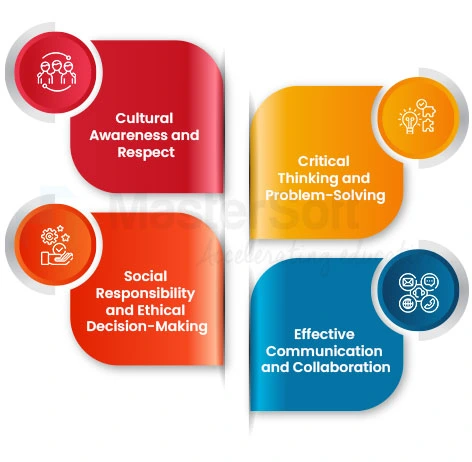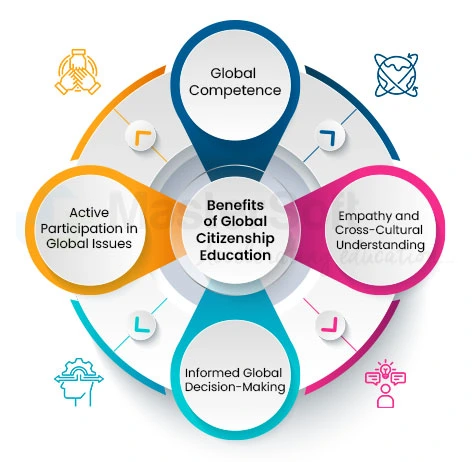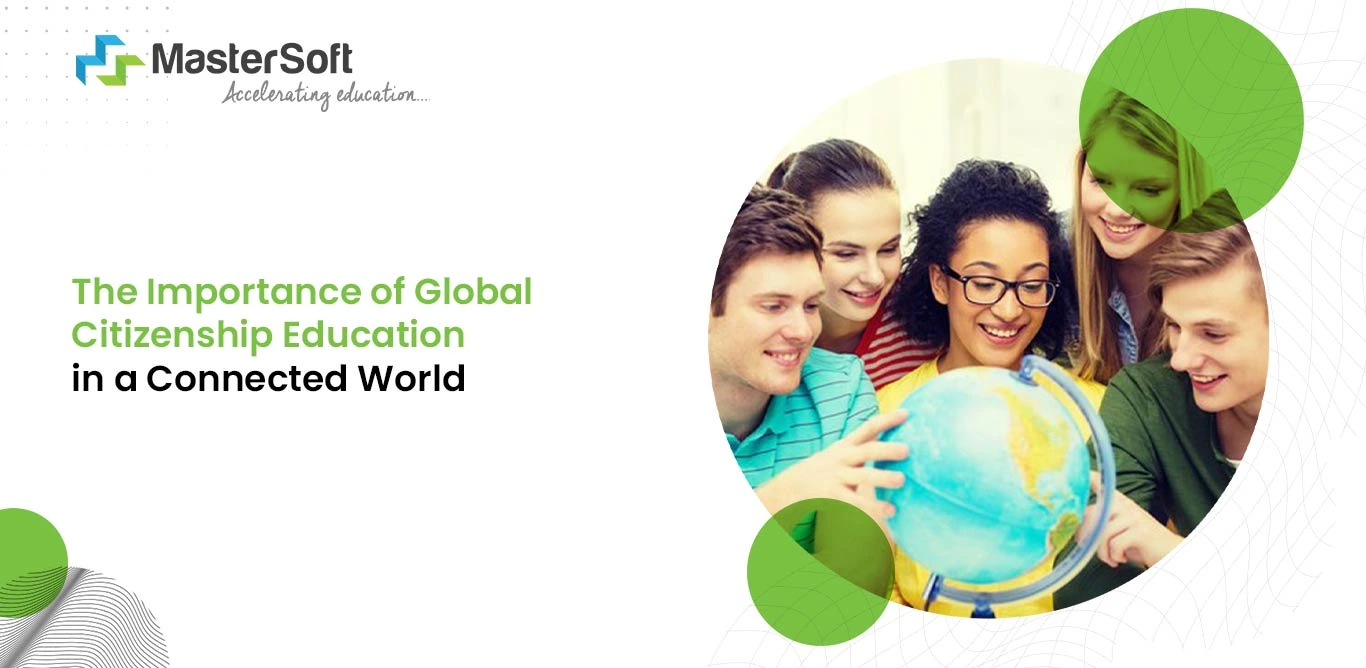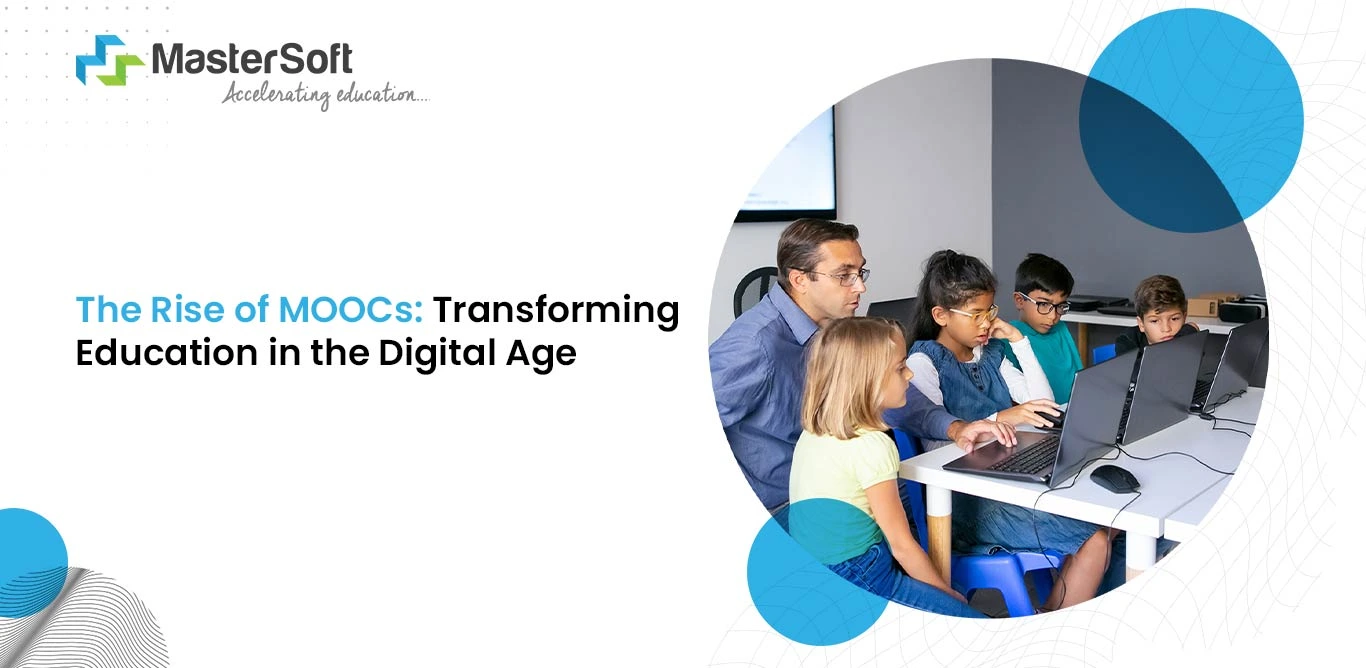07, Dec 2023
Global Citizenship Education is a holistic approach to learning that goes beyond the confines of national borders. It aims to develop individuals who understand the interconnectedness of the world and can actively engage in addressing global challenges. It is an integral part of modern outcome-based Elearning techniques.
This education goes beyond acquiring knowledge; it cultivates skills such as critical thinking, cultural awareness, empathy, and a sense of responsibility toward the global community.
The Pillars of Global Citizenship Education:

Cultural Awareness and Respect
GCE emphasises the appreciation and understanding of diverse cultures. In a world where cultures intertwine and diversity is celebrated, individuals need to develop cultural sensitivity to build bridges and foster cooperation.
Critical Thinking and Problem-Solving
Global issues are complex and often require innovative solutions. GCE equips individuals with critical thinking skills to analyse problems, consider various perspectives, and develop effective solutions. This skill set is invaluable in addressing challenges such as climate change, poverty, and inequality. These skills can be successfully developed through using advanced E-Learning platforms.
Social Responsibility and Ethical Decision-Making
Global citizens are called upon to make ethical decisions that consider the impact on a global scale. GCE instils a sense of social responsibility, encouraging individuals to make choices that promote sustainability, social justice, and human rights.
Effective Communication and Collaboration
In a connected world, effective communication and collaboration are essential. GCE focuses on developing strong interpersonal skills, the ability to communicate across cultural boundaries, and collaborative problem-solving, enabling individuals to work together towards common goals.
National Education Policy 2020: All You Need To Know About NEP 2020 For Schools
Now, let's understand the significance of GCP in detail.
Importance of GCP
1. Nurturing Global Awareness:
Global citizens possess a heightened awareness of their interconnectedness with the world. GCE fosters the understanding that individual actions and choices resonate not only locally but also nationally and internationally.
Through diverse learning experiences encompassing sustainable development, historical events, and cultural diversity, students develop a profound awareness of the intricate web of relationships that shape our global context.
2. Encouraging Active Participation
Global citizens are not passive observers; they actively engage in shaping their communities at various levels. GCE encourages students to leverage their understanding of global issues and contribute positively.
Whether through physical community engagement or online advocacy for human rights, environmental protection, and social justice, active participation becomes a hallmark of a global citizen's identity. This is effectively achievable using advanced Elearning systems.
3. Developing Critical Problem-Solvers
Critical thinking and problem-solving skills are essential for navigating the complexities of the 21st century. GCE goes beyond information transmission, nurturing the ability to analyse, evaluate, and synthesise information from diverse sources.
Classroom methodologies such as debate, role-playing, and collaborative projects empower students to approach challenges with an open mind and consider multiple perspectives, preparing them for real-world problem-solving.
The Role of Technology in Global Citizenship Education
Technology emerges as a powerful catalyst, transforming traditional learning paradigms and paving the way for interconnected, digitally savvy global citizens.
How does it help transform GCE?
- Technology plays a pivotal role in shaping the landscape of global citizenship education.
- With the advent of the internet, online platforms, and social media, individuals have unprecedented access to information and diverse perspectives.
- GCE leverages technology to connect students globally, fostering virtual exchanges, collaborative projects, and cross-cultural dialogues.
- Digital literacy is a crucial component of GCE, ensuring that individuals can navigate the digital realm responsibly and critically evaluate online information.
As we navigate the digital frontier, harnessing technology within Global Citizenship Education not only expands our educational horizons but also cultivates a digital fluency crucial for responsible global citizenship.
Now, let's explore the myriad benefits that this fusion brings to the forefront.
Benefits of Global Citizenship Education

Global Competence
GCE equips individuals with the knowledge and skills needed to navigate the complexities of the globalised world. This global competence is increasingly valued by employers seeking professionals who can thrive in diverse and international settings.
Empathy and Cross-Cultural Understanding
Exposure to diverse perspectives through GCE promotes empathy and a deeper understanding of different cultures and backgrounds. This not only enriches personal lives but also contributes to a more inclusive and harmonious global society.
Informed Global Decision-Making
Global citizens are better equipped to make informed decisions that consider the broader impact on the world. Whether in business, politics, or daily life, individuals with a global perspective are more likely to make choices that contribute to sustainable development and social justice.
Active Participation in Global Issues
GCE empowers individuals to actively engage in addressing global challenges. Whether it's advocating for climate action, promoting human rights, or contributing to international development efforts, global citizens are more likely to be agents of positive change on a global scale.
Having explored the manifold benefits of Global Citizenship Education, it is crucial to turn our attention to its challenges, shedding light on the nuanced considerations required for a comprehensive understanding of this educational landscape.
Challenges and Solutions
Despite the undeniable importance of Global Citizenship Education (GCE), its widespread implementation faces significant challenges that demand thoughtful consideration and proactive solutions.
These hurdles encompass diverse educational systems, cultural resistance, and resource constraints, collectively shaping a complex landscape that requires careful navigation.
Major challenges include
Varying Educational Systems
The existence of diverse educational systems globally presents a significant challenge to the standardisation of Global Citizenship Education (GCE). Each country's unique curriculum, teaching methodologies, and priorities necessitate careful consideration to create a universally applicable framework.
NCF 2020 (National Curriculum Framework - 2020) - A Complete Guide
Cultural Resistance
Resistance rooted in cultural differences poses a hurdle to the adoption of global perspectives within certain societies. Overcoming this resistance requires a balanced approach—acknowledging cultural diversity while emphasising the universal values of GCE. Local community engagement becomes pivotal in making GCE culturally relevant.
Resource Constraints
Financial and infrastructural limitations, both in terms of technology and qualified educators, hinder the widespread implementation of GCE. Overcoming resource constraints demands targeted investments, capacity-building initiatives, and innovative solutions to ensure equitable access to educational materials and opportunities.
Now, let's discuss the potential solutions.
Standardised Framework Development
Governments and international bodies must collaborate to develop standardised frameworks for GCE. These guidelines should align with the fundamental principles of GCE while allowing flexibility to accommodate the diverse needs of learners worldwide.
Cultural Sensitivity in Implementation
Fostering a nuanced approach that respects and integrates cultural diversity is essential. Strategies should involve local communities and educators in the implementation process, ensuring that GCE is perceived as culturally relevant and not in conflict with established norms.
Resource Provision
Addressing resource constraints requires a multifaceted strategy. Governments and organisations should invest in teacher training programs, create culturally sensitive learning materials, and leverage technology to bridge gaps in educational resources. This comprehensive approach ensures that the benefits of GCE are accessible to all.
International Collaboration
A collaborative effort at the international level is crucial for overcoming challenges in GCE implementation. Governments, educational institutions, and non-governmental organisations need to work together to establish a cohesive approach. This collaboration should involve sharing best practices, developing joint initiatives, and facilitating cross-border partnerships.
Promotion of Cultural Exchange Programs
To break down cultural barriers, governments and organisations should actively promote and facilitate cultural exchange programs. These programs provide students and educators with firsthand experiences of different cultures, fostering cultural competency and strengthening the foundations of GCE.
Now, let's discuss UNESCO’s participation in augmenting the GCP.
What Is E-Learning? Features And Benefits Of E-Learning Management System
UNESCO's Role in Driving Global Citizenship Education
UNESCO, recognizing the interconnected nature of contemporary challenges, plays a pivotal role in formalising and promoting GCE.
Emphasising the need to adjust curricula, nurture skills, instill values, and foster behaviours that contribute to a more sustainable and just world, UNESCO catalyses a global movement towards an informed and interconnected citizenry. This extends beyond the classroom to policy development and community engagement.
Final Thoughts,
Global Citizenship Education stands as a beacon guiding the next generation toward a future defined by collaboration, empathy, and collective responsibility.
By fostering global awareness, encouraging active participation, and developing critical problem-solvers, GCE empowers individuals to navigate the intricacies of our interconnected world. The transformative power of GCE lies not only in its ability to provide knowledge but also in shaping compassionate, open-minded individuals committed to creating a world that prioritises equity, justice, and sustainability.
The youth, armed with global citizenship education, hold the potential to build a future where values of interconnectedness and shared humanity guide our collective journey toward a better world.
Achieve Your Global Education Citizenship Goals Using MasterSoft LMS Solution
Mobile: 08448010216
Email:info@mastersofterp.com













